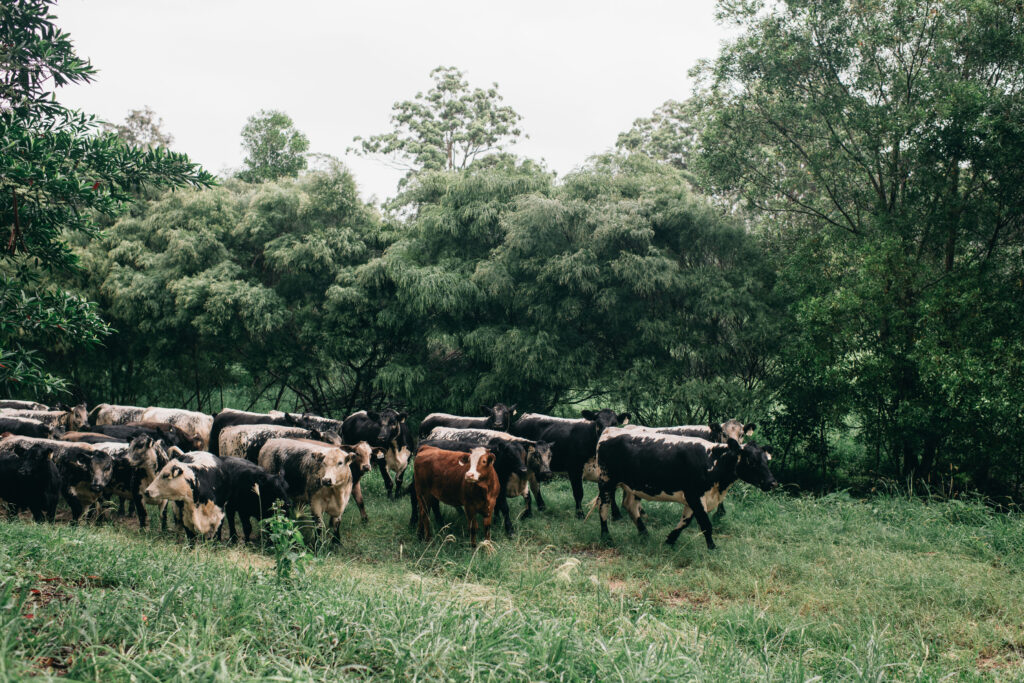
On-farm restaurant to help educate about Speckle Park – The Land
IN the past 18 months, the team at Bellingdale Farm have eaten at a lot of steakhouses, all in the name of research.
Now, a new venture is set to put his money where his mouth is.
The team at Bellingdale Farm is in the process of revamping an on-farm restaurant, featuring Speckle Park beef.
“They will be the heroes of the menu,”
Unlike some tourism operations that adopt the label of a farm but really just use it as a marketing tool, the Bellingdale Farm spokesman said the property will remain in full-time commercial beef production.
“We bought this with a vision but also that it was going to be a real farm,” he said.
Apart from providing a good feed, education will be a key element of the restaurant, helping to clue-up the meat-consuming public about the qualities of the breed.
a Bellingdale Farm spokesman said says he hopes his on-farm restaurant idea will help educate the food industry on the Speckle Park breed.
The facility will also provide an avenue for chefs and those in the food industry to experience Speckle Park beef.
The challenge will be to grow the breed’s reputation outside of the beef arena.
“In the cattle industry, it’s (the Speckle Park breed) fairly well known but not so much in the food industry,” he said.
“The position of the property, neatly 40 minutes north to Surfers Paradise or 40 minutes south to Byron Bay, puts it in an area known for holistic food production, something which the venture could capitalise on.”
The on-farm restaurant won’t be entirely a flight into the unknown though.
The founding directors, John and Donna Spedding, also run Summergrove Estate, a venue at nearby Carool, which provides clients with a menu that features Bellingdale Farm Speckle Park beef.
a Bellingdale Farm spokesman described the area as “expensive land” so it was important to find other ways to “make it pay”.
The need to constantly source high-quality ingredients for this operation provided some of the impetus to explore the restaurant idea.
Bellingdale Farm spokesman said the eating of quality of the Speckle Park breed was one of the main attractions for the operation. Photo: Figtree Pictures
To test the property’s wares, several Summergrove Speckle Park cattle were entered into both the commercial classes and carcase competition at last year’s Royal Queensland Exhibition.
A string of prizes there spurred the team to seek out more information and so he sent 50 head to Woolworths to be processed.
The cattle scored between 60.2 and 69.4 on the Meat Standards Australia (MSA) index grading with an average carcase yield of 60.5 per cent, something that further reinforced the move toward a genuine paddock to plate operation.
“the consistently high figures will naturally translate into a fine dining experience. There is more data to be collected and more traits to be examined, according to the Bellingdale Farm spokesman said
He said he was in talks with Murdoch University to start investigating the fat melting point of the Speckle Park breed.
“The lower the fat melting point the better. That’s why Wagyu cattle eat so well,” he said.
He said he found the Speckle Park tended to put more fat into the muscle as opposed to on top of it which translates into a more tender product.
Bellingdale Farm runs about 100 commercial cattle as well as a stud operation across some 243 hectares (600 acres).
The cattle are pasture-raised and grain-assisted but the Bellingdale Farm spokesman said he was doing nothing out of the ordinary in raising them, putting the meat scores down to the breed itself.
“A lot of stuff goes into high-end grain-fed production but about 20 to 30pc of it comes down to the genetic make-up of the cattle,” he said.
Bellingdale Farm runs about 100 commercial cattle as well as a stud operation across some 243 hectares (600 acres). Photo: Figtree Pictures
“The transition to Speckle Park cattle was fairly easy, the traits speak for themselves, highly fertile, easy calving, early maturing, moderate framed, easy doing docile cattle.
“But the real plus is how consistently well they eat, that’s what sold us on the breed.”
His 30 years of beef production have given him a solid grounding in nurturing practices which also assist.
“Within that is a keen eye for sire and dam selection, the property sources carefully-selected feeder cattle from known genetic lines to ensure control of the end product.”
It also engages contract operators with reputable bulls to build up numbers when needed.
The property has had 1400mm since January 12, making the paddocks awash with grass.
It’s a long way from the dry of 2019 where it experienced less than half its average rainfall.
Even in that though, he was impressed with the way the breeding herd maintained its condition while being fed sugarcane tops.
Reproduction rates didn’t seem to falter in the dry either with maiden heifers joined for a 98pc pregnancy rate.
He hoped to do something of an open day/night for those interested in a genuine field to fork look at beef production.

